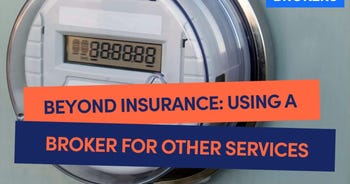What are business risks for small businesses? Modern threats and the insurance to protect you
Running a business comes with risks, many of which are unexpected and can arise at any time. Understanding what business risks are, the different types of business risks and their causes, and how insurance can help with managing business risks across your business is key.
In this guide, we’ll explore the most common types of business risks, key aspects of business risk management, and how Bionic can help you compare business insurance quotes to build the right cover for your business. Read on to find out more.

Understanding business risks
Every decision, investment, and market move comes with potential rewards, but also potential risks.
Business risks refer to the possibility that a company will experience losses, reduced profits, or setbacks due to uncertain internal or external factors. These risks can arise from changes in the market, financial instability, operational challenges, or even regulatory changes.
Business risks can also refer to the daily risks that come with running a business like theft, break-ins, injury and sickness.
Essentially, business risks are anything that threatens a company’s success. While these risks cannot be eliminated, they can be anticipated, assessed, and managed effectively.
Business risks aren’t all negative, though. Taking risks is often necessary to grow the business, but unmanaged risks can result in claims against you, financial losses, reputational damage, operational disruptions, and even legal or regulatory consequences. This is why managing business risk is important.
The most common types of business risks you should know
To understand how to manage them effectively, it’s important to recognise the types of business risks that exist:
Strategic risks
Strategic risks involve decisions affecting a company’s long-term goals. These risks can arise from market changes, technological advancements, or competitive pressures. As a result, they may cause a company to change its strategic direction. Managing strategic risks involves identifying and reducing any risk that affects a business from running and operating smoothly.
Compliance risks
Compliance risks relate to violations of external regulations or internal standards, including privacy breaches, environmental concerns, corrupt and illegal practices, process risks, and workplace health and safety. These risks can lead to fines, legal penalties, and damage to a company’s reputation. Small business owners should try to stay informed about upcoming changes in the legal and regulatory world in order to stay up to date and out of trouble.
Operational risks
Operational risks involve anything that can affect an organisation’s ability to run its business operations effectively and efficiently, such as employee errors, damage to assets, and external fraud. This includes a company’s processes, procedures, policies, and people. Managing operational risks requires considering the company’s day-to-day activities and processes to make sure all internal systems and external factors are in the company’s favour.
For example, if you run a roofing company, then there are many operational risks to manage – from safety and workload to applying for the right licenses to build and more.
Reputational risks
Reputational risks come from negative perceptions of a company’s brand, products, or actions. These risks can damage customer loyalty, investor confidence, and employee morale. If you don’t already, it’s a good idea to regularly monitor your social media and other channels for negative feedback, respond promptly to complaints, and engage in PR to build a positive image.
Managing business risks
Now that we’ve explored the most common types of business risks, let’s take a look at how organisations can control them.
While business risk cannot be entirely avoided because it is unpredictable, there are many strategies that businesses employ to reduce the impact of all types of business risk.
Business risk management includes identifying potential risks, assessing their likelihood and impact, and developing strategies to minimise their effects.
Being effective at risk management involves carrying out regular risk assessments, employee training, and establishing clear communication channels. Businesses should also have contingency plans in place to address unexpected events. Insurance can be a critical tool for helping protect your business against financial losses from some unforeseen circumstances.
Protect your business against business risks
It is essential to understand the types of insurance coverage available and consider which policies to choose to protect your business from risk.
Liability insurance
Employer’s liability insurance
If you are an employer in the UK, you are legally obliged to have employers’ liability insurance to help cover the cost of compensating employees who are injured or become ill as a result of their work. This can help cover compensation claims made by employees resulting from work-related injuries. Most other policies are optional.
Public liability insurance
Public liability insurance could help cover the cost of claims if someone gets hurt or their property is damaged due to negligence your business has caused. This can include legal fees, compensation payments, and any other costs your business could face if it’s held responsible for a claim made against it.
Product liability insurance
This type of business insurance can help cover the costs of compensation if someone is injured or if their property is damaged by a product that you have sold, manufactured, designed, or supplied. Therefore, product liability insurance can be key if your business is involved in the design, production, or sale of products.
Professional indemnity insurance
This is essential insurance coverage for businesses that provide professional advice. Professional indemnity insurance can protect your business against claims regarding negligence or errors in your advice. This can be mandatory for certain professionals, such as solicitors.
Directors’ and officers’ insurance
Directors’ and officers’ liability insurance can cover the cost of compensation claims made against your business’s directors and key managers for alleged wrongful acts. Claims can include wrongful acts such as breach of trust, breach of duty, neglect, error, misleading statements, and wrongful trading.
You should consider taking out insurance at the start of your business journey to help ensure you are protected from the time you begin trading.
Stock and contents insurance
Incidents can happen at any time. Business stock and contents insurance can help give you peace of mind that you’ll be able to get back on track should the worst happen.
This type of business insurance can help cover the costs of replacing your stock if any of it is lost, stolen, or damaged. Typically, a business contents insurance policy may cover your workplace against the risks that fire, water damage, and theft can pose to your furniture, tools, and equipment.
If any part of your business relies on selling stock, goods, or merchandise, this type of business insurance coverage could be essential. Businesses that typically consider stock insurance are manufacturers, tradespeople, pubs and restaurants, cafes, takeaways, hairdressers, and salons.
While stock will help to cover items in your business you’re selling, contents should help cover things like desks, racking, shelving that are items owned by your business.
Business equipment insurance
Every business has equipment that it needs to keep the business running. Business equipment insurance can help cover the cost of replacing or repairing lost, stolen, or accidentally damaged equipment.
If you need your equipment to carry out your work, you may need business equipment insurance. This is especially the case for any business that uses valuable tools, machinery, or devices to operate, including tradespeople, freelancers, shops or retailers, and offices.
It’s designed to protect any equipment used in connection with your business, including communication equipment, portable machinery, office contents, and machinery leased by you or your partners. How much you pay will vary depending on several factors, including the type of equipment you want to cover, how often the equipment is used, your business location, and coverage limits.
Business interruption insurance
Business interruption insurance is a type of business insurance cover designed to help protect you and your business if a disaster or event causes material damage and you’re not able to operate normally.
Essentially, there are three types of business interruption cover - loss of gross profit, loss of gross revenue, and increased cost of working.
- Loss of gross profit is the most common type used in the UK and covers the loss of profit following a reduction in turnover.
- Loss of gross revenue is often used by businesses in the service industry.
- Lastly, the increased cost of working cover would be for a business that could easily move trading elsewhere and still operate. For example. If an office burnt down, and the increased cost of working is covered on the policy, the insurer could look to assist with costs associated with renting a temporary office space to keep businesses trading and minimising the disruption to the business.
While business interruption insurance is not required by law, any business that would suffer financially if it had to close suddenly due to unforeseen material damage should consider it.
Cyber insurance
Cyber threats and data breaches are a high risk for most businesses in today’s digital world. If your business uses any type of connected devices, such as laptops, payment devices, and even smartphones, it’s at risk from hackers and cyber attacks. No matter the shape or size of your business, you need to consider cyber insurance if you use any internet-connected devices.
But what exactly does cyber insurance cover? Cyber insurance helps protect businesses from digital threats in several key areas:
- Pre-incident support - Includes risk assessments, employee training, and expert advice to strengthen defences.
- Post-incident support - Provides crisis management, legal help, and forensic services after hacks or data breaches.
- Cyber extortion cover - Addresses ransomware and DDoS threats, funding ransom payments, negotiations, and investigations.
- Damage to digital assets - Ensures restoration or replacement of corrupted data, software, or networks.
- Security and privacy breach protection - Covers costs for legal fees, notifications, PR, and reputation management when personal or sensitive data is stolen.
Legal expenses insurance
Legal expenses insurance is a type of insurance that can protect people or businesses if they have an unexpected legal issue. It helps you access support, advice, and sometimes representation to resolve the issue you’re dealing with.
It might be a good idea to consider taking out commercial legal expenses cover. The level of legal expenses coverage that your business needs is unique to your business and the products or services your business provides.
What is and isn’t included in your legal expenses insurance will vary from provider to provider. Always check the terms and conditions in your policy to see what is and isn’t included.
Depending on your policy, commercial legal expenses coverage could offer protection in contract disputes, compensation awards, employment disputes and regulatory costs.
Business insurance policies usually include a range of covers, such as employer’s liability insurance, public liability insurance, and cover for your contents, business equipment, and stock.
At Bionic, we can help you to find a package insurance that is tailored to meet the exact needs of your business and cover against possible risks.
Compare insurance quotes with Bionic
By understanding the types of business risks, their causes, and the risks of setting up a business, you can take proactive steps to protect your operations, your staff and your business bank account.
One of the ways to help manage the fallout from risks is by having the right insurance. From public liability to protecting against unexpected disruptions, business insurance can help provide safety and give you peace of mind.
If you’re ready to explore your options, get in touch with the helpful team at Bionic to compare business insurance quotes today.








